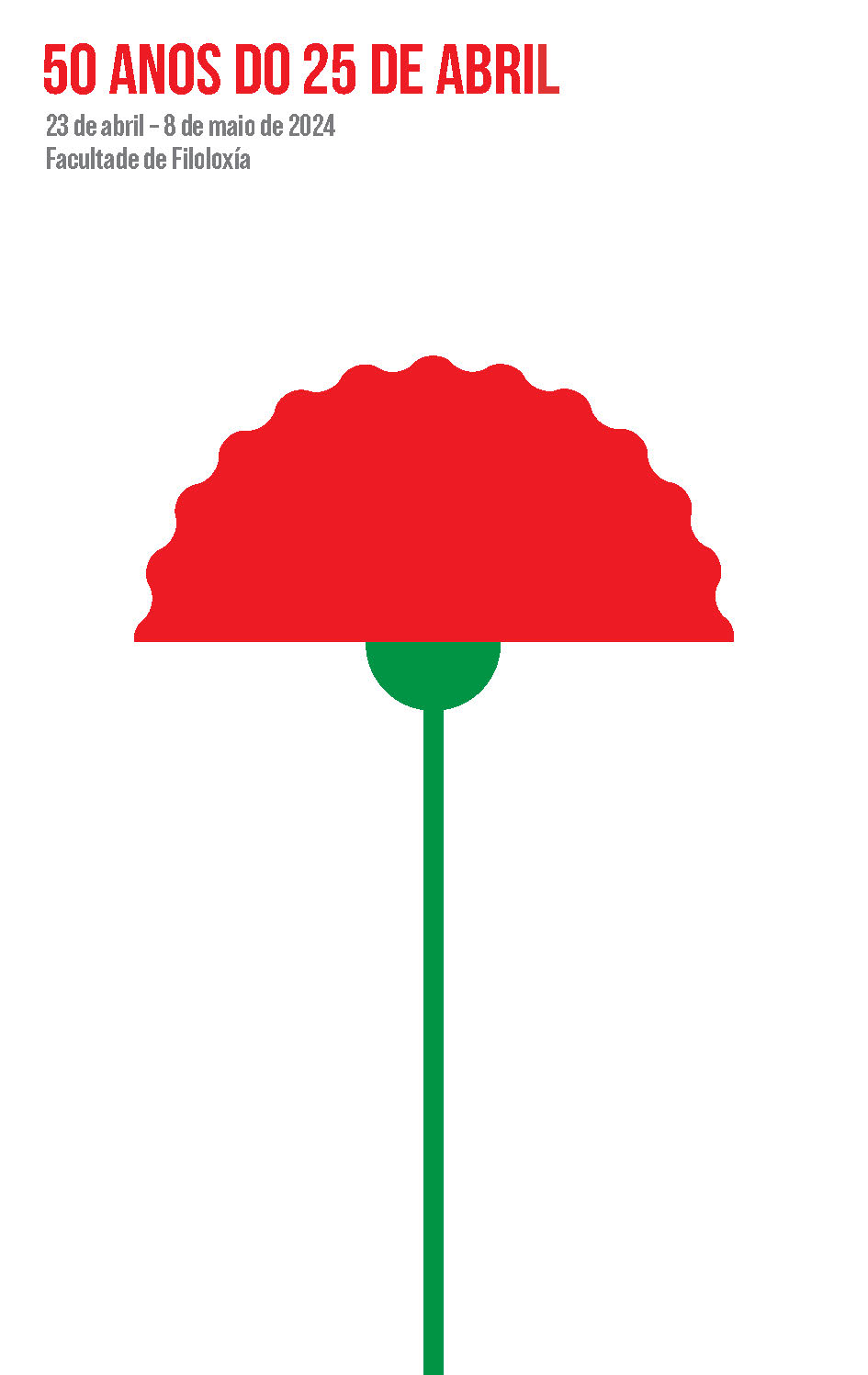
Margarita Ledo Andión takes part in the conference “50 anos do 25 de abril “.
The Emeritus Professor of the GEA will be participating in the colloquium: "O 25 de abril do outro lado do Miño" at the Faculty of Philology of the USC.
The Carnation Revolution, the military uprising of 25 April 1974 in Portugal, known in Portuguese as the Revolução dos Cravos, brought down in one day the dictatorial political regime that had existed in the neighbouring country since 1926. The five days that make up the programme of the conference commemorating the 50th anniversary of this historic event will take place from 23 April to 8 May.
The first, on Tuesday 23 April at 13.00, will take place in the Philology lecture hall, where Professor Izabel Margato will analyse the literary texts that in some way anticipated the revolution before it had even happened.The writer and former soldier Xosé Fuertes and the filmmaker and professor of Audiovisual Communication at the USC Margarita Contento will talk with Áurea Sánchez and Joel Gômez on Wednesday 24 April at 10.30 am in the Philology lecture hall about how the 25th of April was experienced on the other side of the river Miño. The third day, which concludes the part of the programme dedicated to culture, begins on Thursday 25 April at 10.30 am in the Philology lecture hall and will consist of the presentation of the volume 50 años de Abril en la Galicia by the coordinators, Carlos Pazos-Justo and Roberto Samartim; at 11.00 am the musician and doctor R. Ramos will give a presentation of the book “50 años de Abril en la Galicia” (50 years of April in Galicia). 00 hours, the musician and doctor Rui Pato will talk about his experience as a student when he accompanied José Afonso, the author of the song ‘Grândola, Villa Morena’, which was used to start the mobilisation of 25 April, and Adriano Correia de Oliveira, and his experiences as a military doctor who was on the streets of Lisbon on that date.
The second part of the programme, dedicated to history, begins on Tuesday 7 May at 12.00 noon in Philology with a talk by Major General Pedro de Pezarat Correia, who will explain how the military coup became a revolution.At 7.15 p.m. in the Museo do Pobo Galego there will be a colloquium on the Iberian transitions with the participation of Fernando Rosas, Nieves Lagares and Manuel de Artaza, moderated by Antón Losada.On Wednesday 8 May, Fernando Rosas will give a lecture on the historical memory of 25 April at 11.00 am in the Philology lecture hall, which concludes the programme of activities.
You can watch the sessions online on the USC channel.
More information and consult or download the complete programme.

The Carnation Revolution, the military uprising of 25 April 1974 in Portugal, known in Portuguese as the Revolução dos Cravos, brought down in one day the dictatorial political regime that had existed in the neighbouring country since 1926. The five days that make up the programme of the conference commemorating the 50th anniversary of this […]
In 2024 AGAPI celebrates its 30th anniversary and one of the actions it is going to carry out is the celebration of itinerant training sessions in the three Galician universities in the faculties of Information Sciences within the Audiovisual Communication Degree at the University of Santiago de Compostela (USC), University of Vigo (UVigo) and University […]
The conference Cloudclass: Innovative teaching with virtual studio technology took place on 8 March 2024 at the Open Universiteit (Heerlen). Educators, technical experts and students gathered to delve into the field of immersive technology and its applications in education. The event, which marked the culmination of the CloudClass: Low Cost, Mobile, Cloud &Template Based Augmented Reality […]
